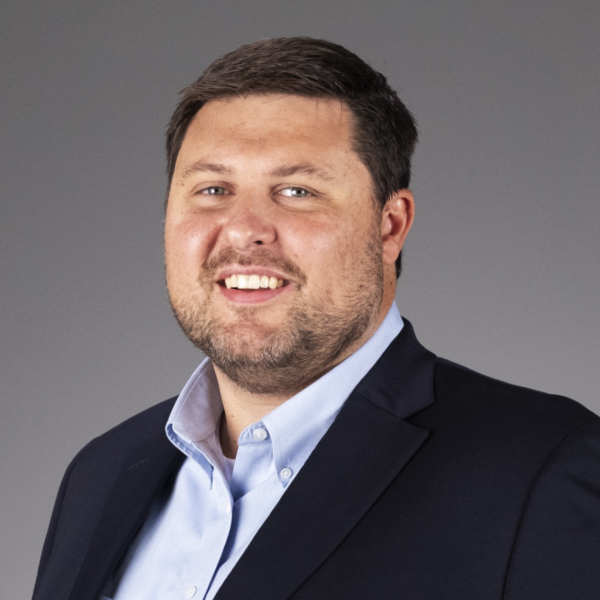CERAWeek kicks off Monday. The premier event on the annual energy industry calendar has transformed from a pure oil-and-gas conclave into a 360-degree exploration of the future of energy. Ahead of the conference, our President and Chief Development Officer Damian Beauchamp offers his expectations, thoughts on 8 Rivers’ role, and broader vision for the energy transition as a whole in a Q&A with our Marketing team.

What are you most looking forward to at CERAWeek?
CERAWeek brings together top energy leaders to examine issues of the day and look forward to what’s coming. It’s where new ideas get sparked and where existing ideas and innovations find homes. That dynamic of legacy industry meeting new technology—especially at the Innovation Agora, a relatively new stream—is what I’m looking forward to most.
What are the biggest opportunities for 8 Rivers?
Nearly all of the large oil and gas companies that will be there are engaged with climate change, including some form of net-zero target. They want to utilize their existing hydrocarbons in cleaner ways. I see it as a tremendous opportunity for us to find partners for our solutions, in particular clean hydrogen, CCUS, and DAC.
We also look forward to cultivating our partnerships with governments from the US and UK. CERAWeek is a key convening forum that we will use to update them on our activities and find additional ways to collaborate.
Another great opportunity for our organization is the overall learning experience—we’ll have a big team there hunting for fresh ideas. We’ll also reveal a new development we’ve been working on for a few months, which has to do with our brand identity and corporate message.
What are some of the key topics you’ll be discussing?
Our SVP of Engineering and Operations, Steve Milward, will appear on a panel about CCUS, and I’ll attend a closed-door meeting with Dr. Geri Richmond, Under Secretary for Science and Innovation in the US Energy Department and energy executives. We’re both going to discuss expediting permitting for Class VI wells, which are vitally important for carbon sequestration. One topic we’ll bring to the table is primacy, in which the federal government allows states to permit their own wells, without the need for federal approval. Right now, states like Wyoming and North Dakota have primacy and Texas is working on it, and we’d like to see it spread.
We’d also like to see how to apply the primacy concept to Native American reservations. Traditionally, Native Americans lose as much as 99% of the value of oil and gas extracted from their lands. With CCUS, the value chain is the opposite of extractive industries: instead of taking a resource from the land, the resource gets added back in. This allows the Native American stewards of those reservations to collect fees for the Class VI wells they house. This begins to address long-standing economic and environmental justice concerns, one that we at 8 Rivers have been fighting for. Granting primacy can take a long time, and we look forward to working with the federal government to shorten this window.
CERAWeek has traditionally been a forum for large oil and gas incumbents, but in recent years has taken a more innovation-focused approach that tries to bridge gaps in the energy transition. How do you view that shift and 8 Rivers’ role in it?
Historically, the gap between the two camps has been wide. Clean-energy technologies fell outside the core competencies of the big incumbents, who saw them as additional costs to layer onto the usual volatile commodity cycle. Now, you have both incumbents investing heavily into renewable energy like wind and solar as well as growing interest in pathways like CCUS that play into the strengths of oil and gas companies. This has brought the clean energy industry closer to traditional oil and gas. The gap is definitely narrower now than it’s ever been.
At 8 Rivers, our strength is that we’re technology agnostic, focused on the utilization of hydrocarbons in a way that is climate neutral or even climate positive. You see an example of that with Occidental Petroleum, which is looking to make products like sustainable jet fuel using CCUS provided by Carbon Engineering. The entire value chain of heavy industry is under immense pressure to decarbonize, and we can help them do that.
How can we shrink this gap even further, to put us on a path of as little warming as possible?
You have to address environmental and economic problems in tandem. The leaders of CERAWeek are publicly-traded companies, ultimately responsible to their shareholders. These include pension funds responsible for the savings of millions of retirees. If we, as innovators, only offer environmental solutions, they won’t come to the table. You have to make the solution as economically attractive as it is environmentally beneficial. At the same time, these technologies need to be deployable and scalable. We cannot pick winners and losers and need to recognize that everything needs to be on the table if we are going to successfully reach net zero.
Follow us on LinkedIn for updates throughout CERAWeek 2023, including key takeaways from our top executives like Damian, our co-founder Bill Brown, and more.